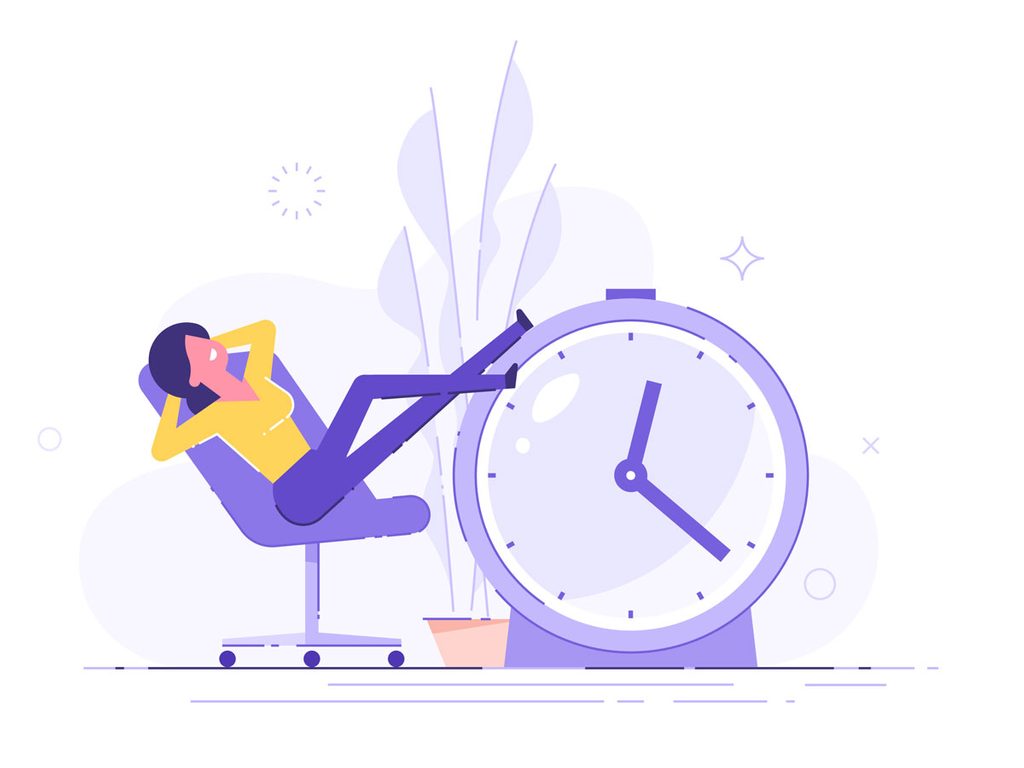Why Procrastination Can Actually Be Bad for Your Health

You might think procrastination is annoying but fairly harmless. Think again: Putting things off can be bad for your health.
Giuseppe Del Giudice’s pile of unpaid bills always makes him feel uneasy. More often than not, Del Giudice leaves his paperwork undone and sweeps the floor or watches TV instead, waiting until the last moment to write the monthly checks. Sometimes he incurs late fees because of his habit of putting things off, but in many ways the emotional toll is worse. “The longer the bills go unpaid,” says Del Giudice, 58, “the more my anxiety soars.”
Most people procrastinate at some point.
“It’s part of the human condition,” says procrastination researcher Tim Pychyl, a psychology professor at Carleton University in Ottawa, Canada. “One of the ways we cope is avoidance, and that’s what procrastination comes down to: We want to feel good now. The way to do that is to avoid the task.”
You can procrastinate on nearly anything, even enjoyable tasks such as planning a vacation. “Some people procrastinate cleaning. Some people procrastinate by cleaning,” says Piers Steel, a management professor at the University of Calgary in Canada. “One that almost everyone procrastinates on is their wills,” says Steel. “Seventy to 80 percent of people, when they pass away, have no will or an out-of-date or incomplete will. It leaves terrible situations.” But death isn’t actually the ultimate avoidance trigger. Research has shown that the top tasks people delay are cleaning, advancing their careers, taking care of their health, and planning their finances.
At the end of the day—or month!—most people get their tasks done on time, but around 20 percent are chronic procrastinators at home and at work. One big factor for them is fear of failure, of not living up to expectations. Kelli Saginak, a 57-year-old functional health coach from Wisconsin, procrastinated about looking for a new job for years. That inability to take action only confirmed her belief that she would never do any better. “It’s totally fear of judgment,” says Saginak. “If I don’t take the risk, decide, or commit, I don’t have to face the judgment. Yet it’s simply me judging myself.”
Some people embrace procrastination, believing that they thrive under pressure.
But researchers have debunked that notion. “I did an experiment several years ago, putting procrastinators under restrictions of time,” says Joseph Ferrari, a psychology professor at DePaul University in Chicago. “They did worse than non-procrastinators, but they thought they did better. They made more errors. They took longer.”
Whatever the motivation (or lack thereof), procrastination is usually not going to be good for you. Delaying a diet or exercise program may increase your risk of heart disease. Not having seen the doctor when your illness was easier to treat may shorten your life. Just thinking about what you haven’t done may cause discomfort. “Procrastinators experience higher levels of stress, both from leaving things to the last minute and from their own negative and self-critical feelings about their procrastination,” says Fuschia Sirois, a psychology lecturer at the University of Sheffield in Sheffield, England. “Some of the research has shown that this stress increases their vulnerability for catching colds and experiencing digestion issues, insomnia, migraines, and muscle tension.”
One of the most common procrastination-prone activities? Going to bed on time. The excuses are usually the same: “I deserve to unwind” or “I want to rescue the day by doing some of the things I didn’t get done earlier.” But bedtime procrastination can lead to sleep deprivation, which is associated with a greater risk of obesity, heart disease, and other health issues. (Also, these before-bed habits may be keeping you from getting a good night’s sleep.)
There’s one bit of good news: People tend to procrastinate less as they age. “As you grow older, the illusion of our immortality does get stripped away,” Steel says. “It becomes clearer: How many summers do we have left? Ten? Fifteen? They’re really finite. What are you going to do with each of those summers?”
For those of us in need of motivation, the best advice might be to think small.
“We used to believe behaviours follow attitude, but if you can prime the pump with a little bit of progress, that motivates you,” Pychyl says. So if you have been procrastinating on starting an exercise routine, just put on your walking shoes. If you’ve been putting off a work project, reread your boss’s notes about it.
Next, try sending yourself signals to prompt action. For instance, you might put your lights on a timed dimmer switch to encourage a consistent bedtime. Joel Anderson, a philosophy researcher-lecturer at Utrecht University in the Netherlands, crafted an experiment around this concept, and it worked on most of his subjects. “They formed an intention,” Anderson says. “ ‘When the lights start to dim, I’ll start going to bed.’”
Finally, reward yourself for each step you take toward your goal. (Or, use temptation bundling to battle procrastination.) After you’ve gone to the gym, take a relaxing bath. After you’ve paid the bills, watch your favourite TV show. (But don’t try to convince yourself it will work the other way around!)







